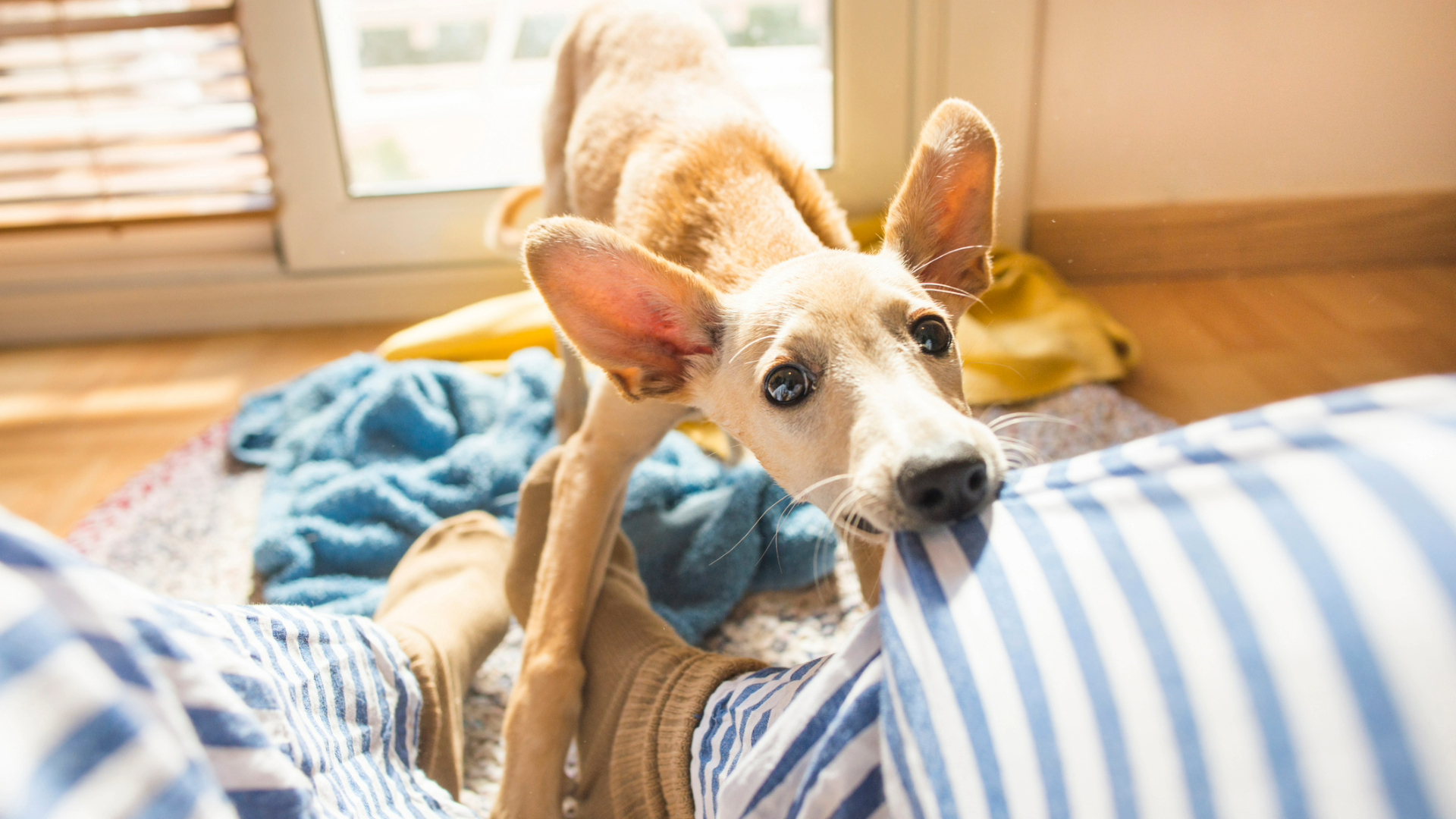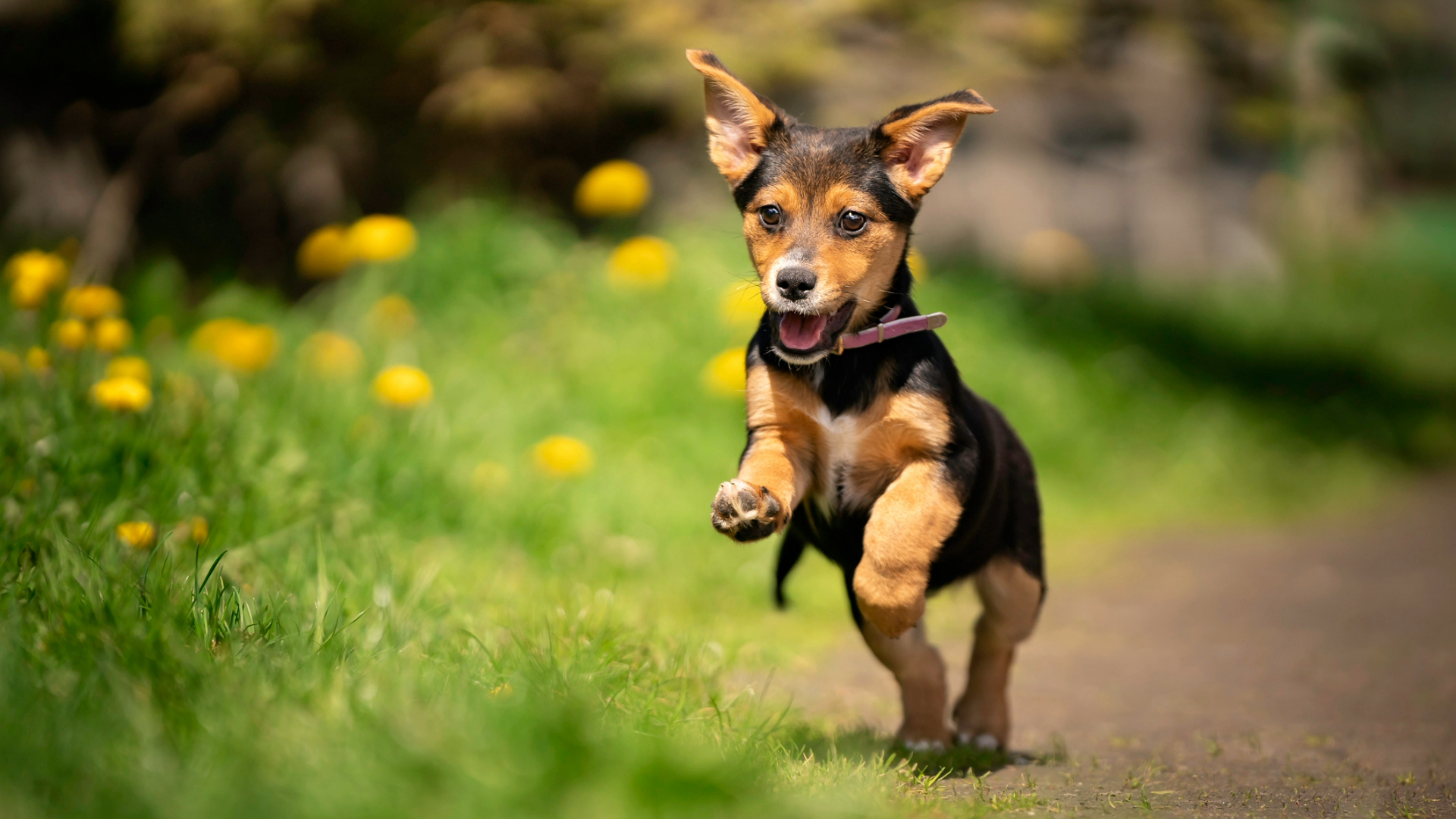This is what to remember when your dog goes through the teenage phase – you’ve got this!
Remember: as testing as it can be, it doesn’t last forever.

Get the best advice, tips and top tech for your beloved Pets
You are now subscribed
Your newsletter sign-up was successful
Just as humans go through physical and behavioral changes as teenagers, dogs do too. Your dog’s adolescent phase won’t last forever, of course, but it can be a difficult time for dog parents as they see their pooch grow from that sweet little puppy into an adult dog.
That said, it’s not necessarily an easy time for the dogs themselves, either, even if they’ve got plenty of the best dog treats to help them through it. When your dog goes through the teenage stage, it might not be plain sailing for either of you.
However, there are some key things to remember to help you through it, and Lisa Burton of Listen Dog Training, an award-winning dog trainer, has outlined them in a recent Instagram post.
According to Burton, there are some behaviors you might notice when your dog becomes a teenager. They might ignore a recall that used to be strong, as well as cues and commands they used to know, become more energetic, active, and impulsive. They might also become more reactive to things that never used to trigger them – here’s how to calm a reactive dog for more help.
Your pup may also become more easily distracted, find it difficult to disengage, become frustrated more easily, and revert back to destructive chewing.
Burton explains, “As dogs reach maturity, their biological priority to continue their own lineage rocks up at the forefront of their developing brain.” In the wild, they’d have to decide between staying with their pack and helping rear and protect future litters, or breaking away from the pack and starting their own by choosing a mate.
So, if your dog’s behavior seems to be going backward or getting worse in the teenage phase, they might be testing their relationship with you – their pack – or realizing that there’s a big world out there, and wondering what it might be able to offer them that you can’t.
Get the best advice, tips and top tech for your beloved Pets

When you consider a dog’s natural instincts, it makes sense. But, it doesn’t necessarily make this time any easier for you, and you might find yourself wondering how to deal with a badly behaved dog. So, what can you do?
“Know that this doesn’t last forever, so don’t lose hope or give up on your dog,” stresses Burton. She recommends prioritizing your relationship with your dog and making sure you keep up with fun training sessions, lots of positive interaction, and of course plenty of play.
Make sure you provide your dog with lots of opportunities for exercise to help them burn off their excess energy, and prioritize keeping them safe. Loss of recall? Keep them on a long line for the time being, and reinforce desirable behaviors as much as you can. And, if your dog becomes more reactive, Burton recommends working through it with the attitude you had when first socializing your puppy. Take things slow and steady, and always positive!
This time in your dog’s life can be tricky, but it’s not permanent. Persevere, and you should be rewarded with many more years of fun and happiness with your pup.
Enjoyed reading this? Check out these features: How counterconditioning can help your reactive dog and increase your bond and 'my reactive dog impacted my entire household, here's what I did about it'.

Adam is a freelance journalist specialising in pets, music and culture, and mental health and wellbeing. He investigates and writes the large majority of news on PetsRadar, and collaborates with veterinary experts to produce informative pet care content.
Adam has a journalism degree from Southampton Solent University and a masters degree in Magazine Journalism from Cardiff University. He was previously senior editor at dog advice website DogTime.com, and has also written for The Independent, GoodToKnow and Healthline.
He owns two rescue cats, Bunny and Dougie, and has also previously had a rabbit, fish and Roborovski dwarf hamsters.
